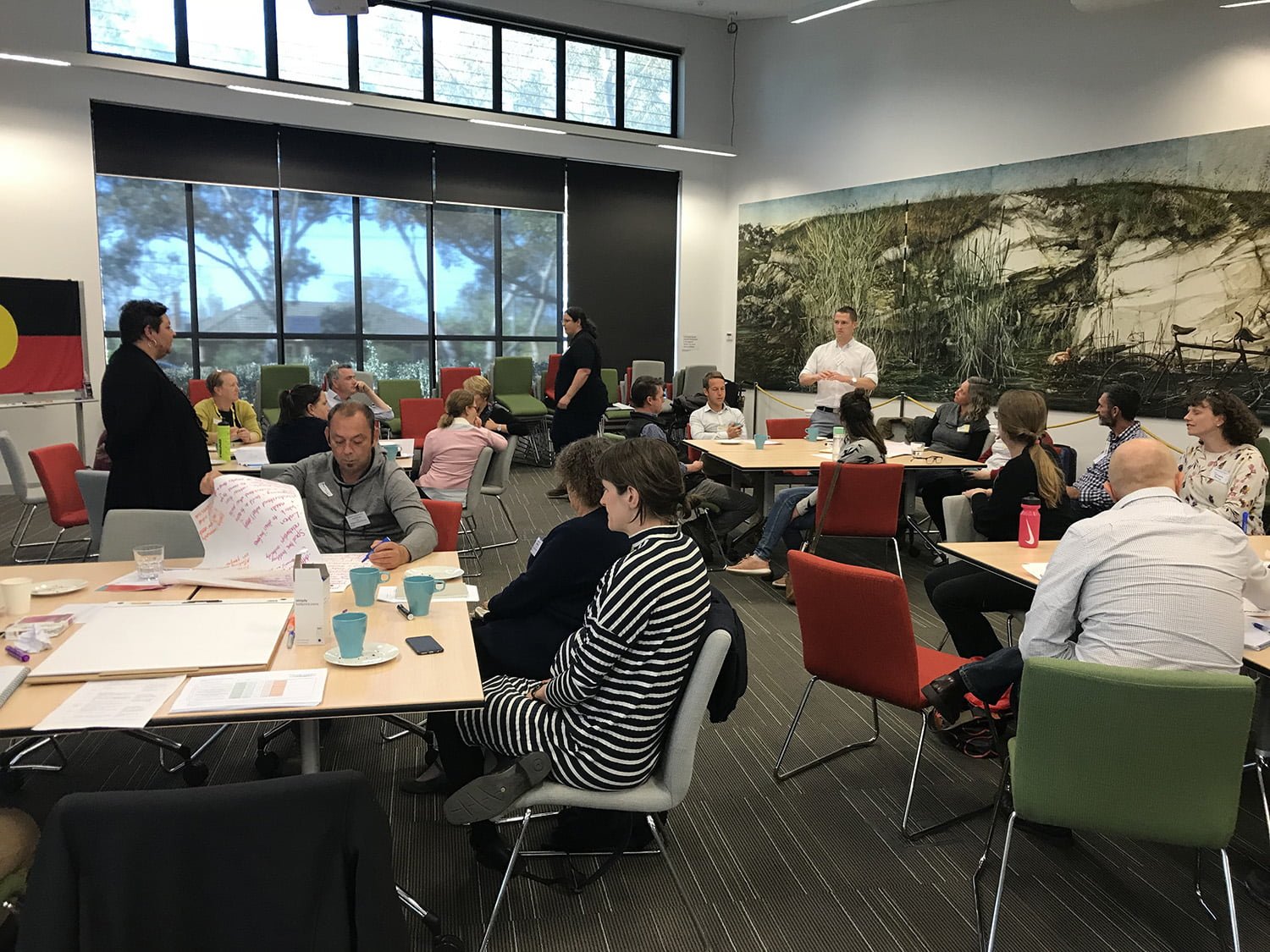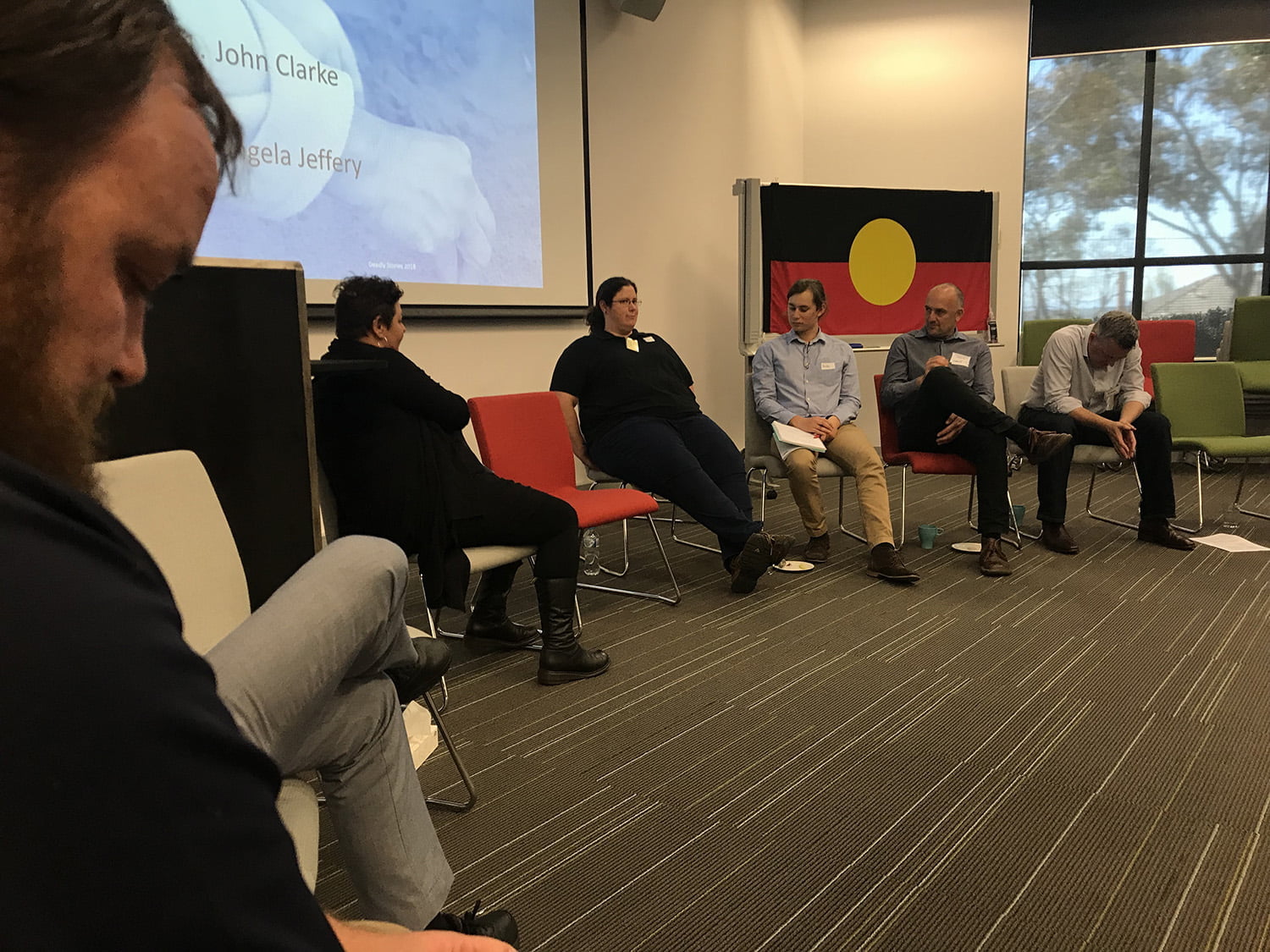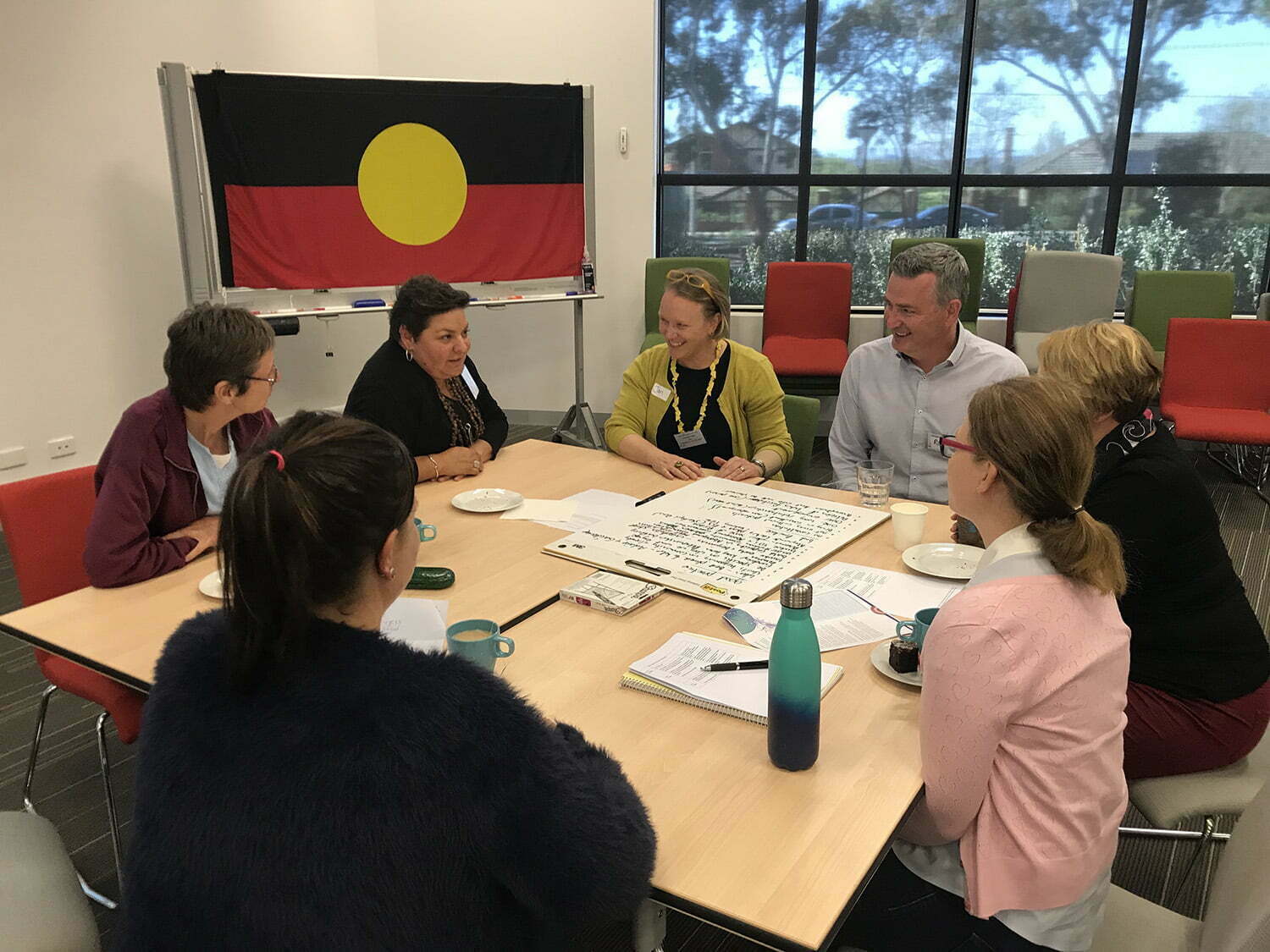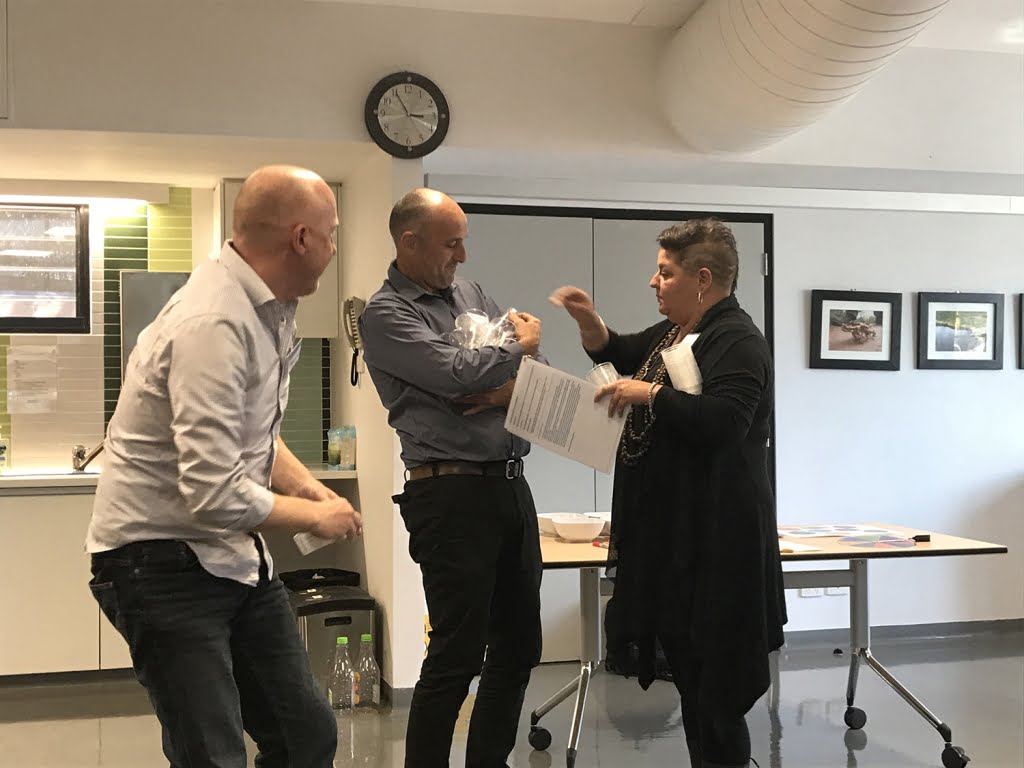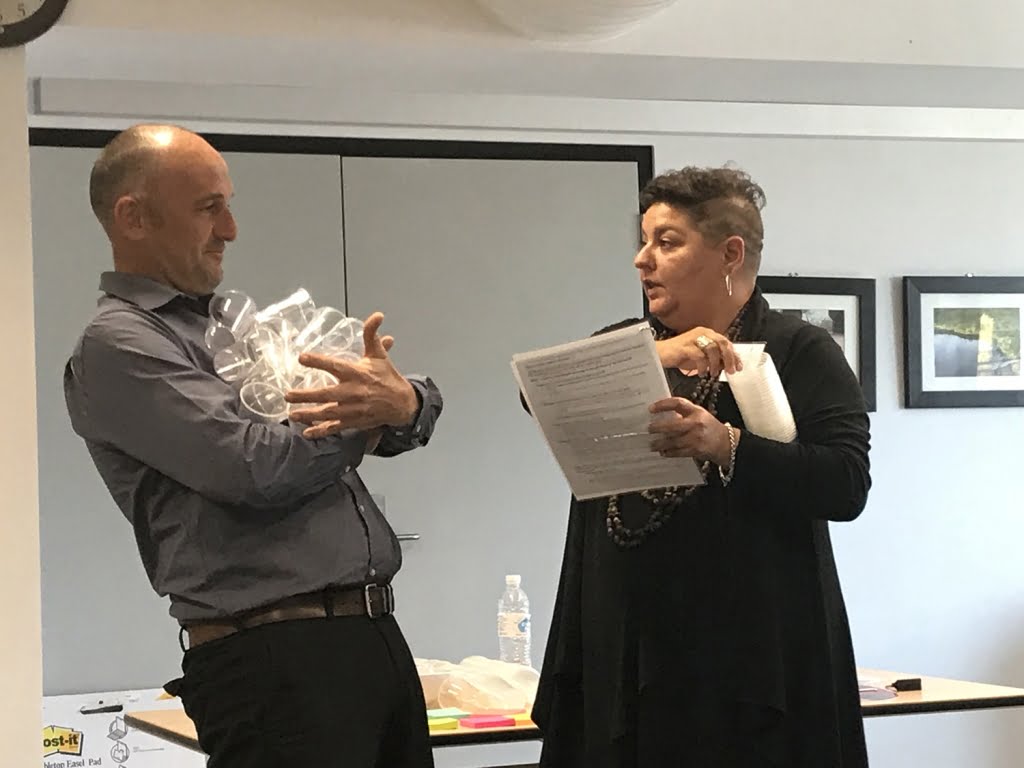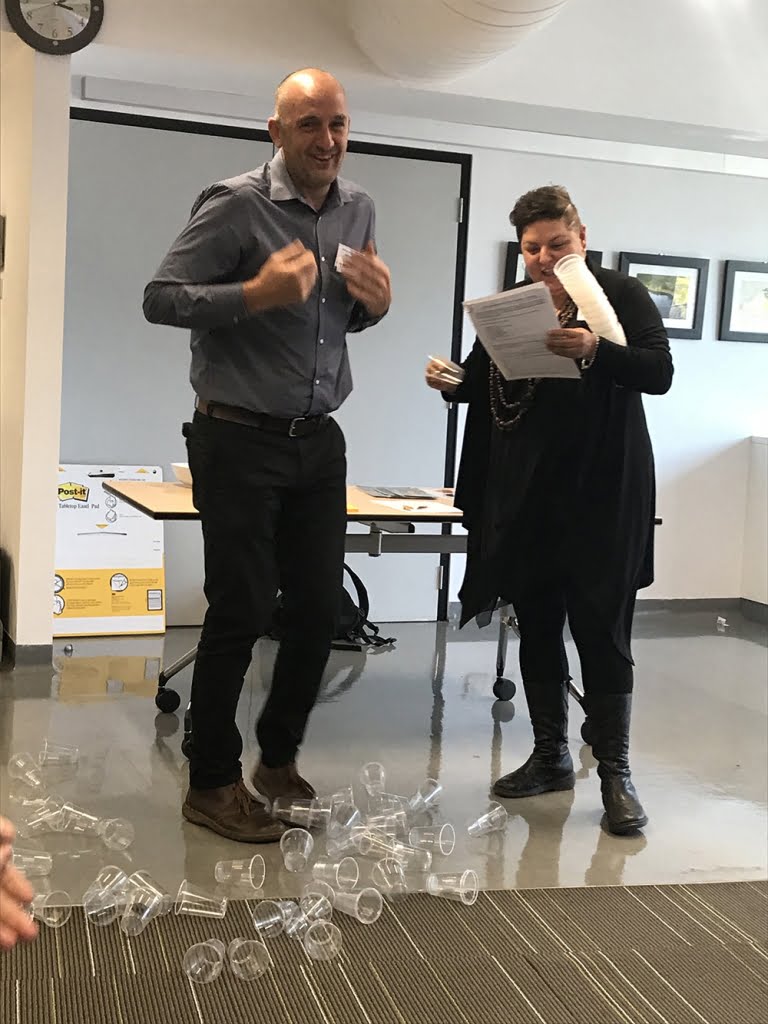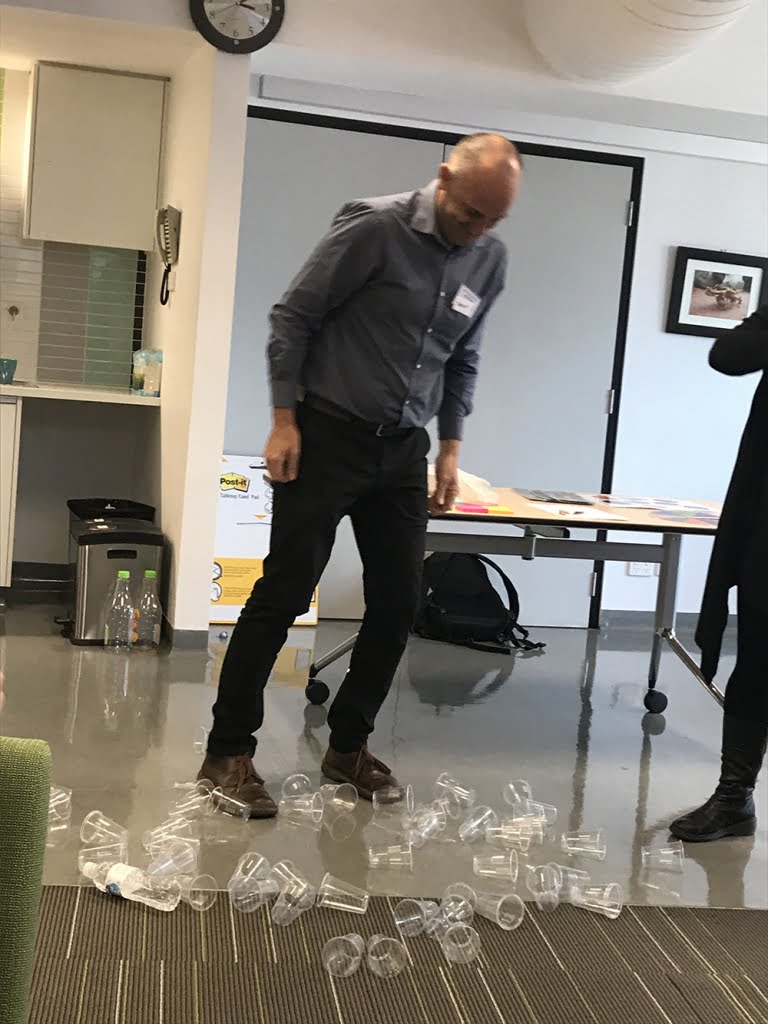Author: Robyn McKay North Central CMA
Goals
As a non-Aboriginal person working in Aboriginal engagement, I wanted to build my skills in culturally appropriate facilitation. Workshops and meetings to engage the Aboriginal community are often run through a white cultural bias, and don’t necessarily provide a culturally safe space for Aboriginal people. Understanding this is important to enable self-determined Aboriginal participation.
Past and present Twinning program participants had expressed an interest in building their capability in Aboriginal engagement approaches, so my project gained great support from the 2018 mentoring participants.
My project’s objectives were to:
- Grow my understanding about culturally appropriate facilitation and provide a learning opportunity for others.
- Build networks and relationships with Aboriginal people and the NRM community.
- Learn ways to provide a platform for Aboriginal perspectives to be voiced and listened to.
Actions
My project, with Siwan our facilitator’s support and encouragement, was to co-ordinate a cultural literacy session for ‘Twinners’ and agency staff to promote cultural awareness, as well as to gain confidence and understanding to work better with their local Aboriginal communities. We felt it was important that we were mentored by Aboriginal people on how best to have relationships of mutual trust, respect and support.
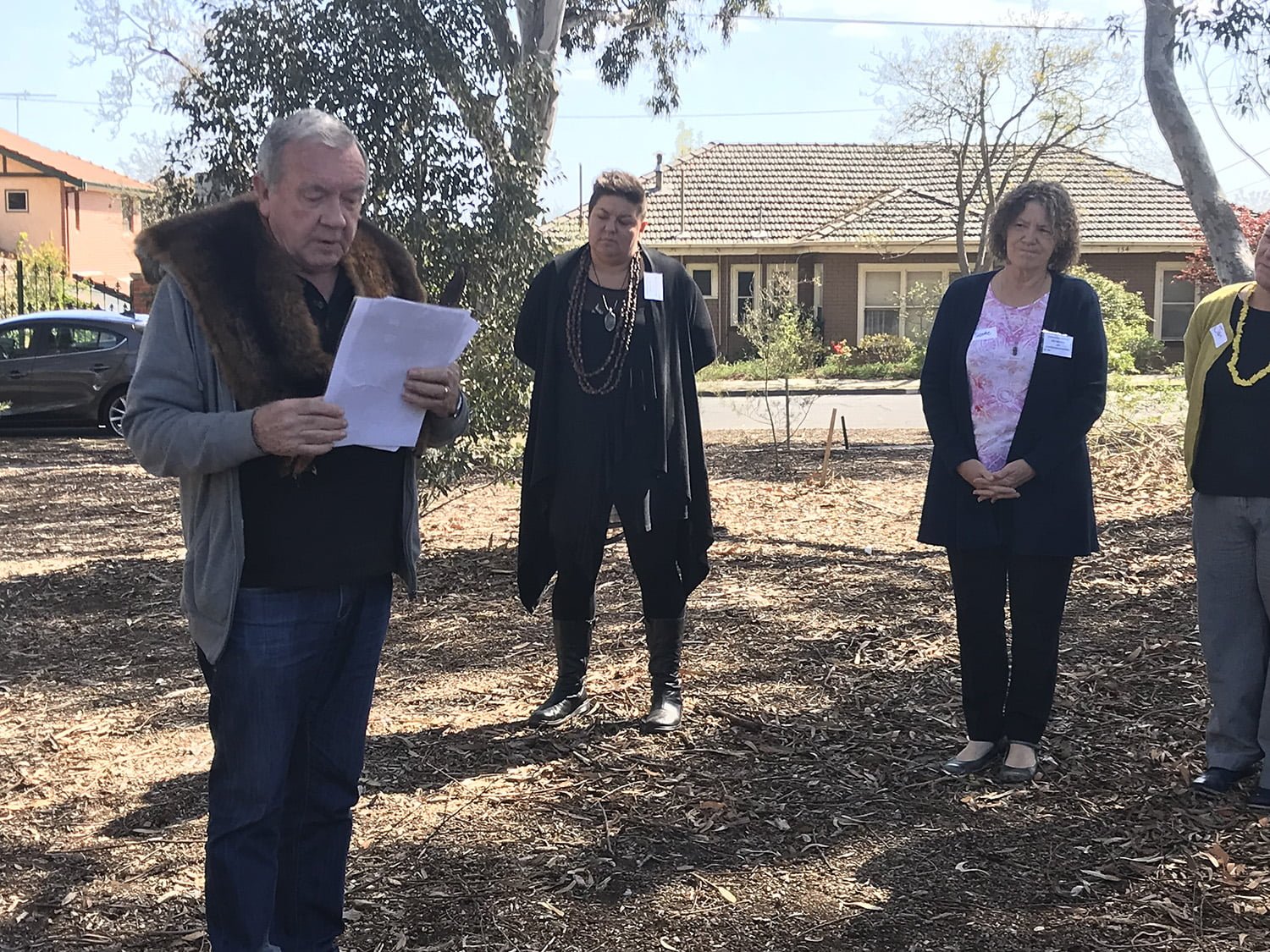
At the Twinning workshops, Siwan emphasised the power of story to convey messages and make connections with people. Story telling has always been a significant method for the sharing of cultural information; with this as our base, the ‘Deadly Stories’ cultural literacy workshop evolved.
Facilitated by Tashara Roberts, the workshop audience heard the stories of four Aboriginal people, including Tashara herself, of what it is like to live in ‘two worlds’ between your culture and white mainstream decision-making processes and institutions. . Through their brave sharing of personal, and at times, painful journeys, the audience gained insight into the challenges faced by many Aboriginal people, and the additional ‘cultural load’ they carry.
The agenda covered the topic of white privilege using interactive sessions, as well as providing a scenario for participants to practically apply the lessons learned during the day to their own workplace and waterway management. In our white privilege exercise shown below with Trent and Tashara, we contrasted the ‘obligation and situation’ load of a white person and with an Aboriginal person. We explored the impact of inter-generational trauma and were confronted with the reality of the complexity and disadvantage many Aboriginal people live within.
The format proved successful with all participants saying how much they were personally moved by the storytelling approach:
“the stories were touching and incredible – those made the day…so many useful lessons.”
“I got the most out of this cultural day than any other one I have participated in.”
“Everyone getting to share what they would take away. Personal stories, sharing, openness of speakers. Practical application of what we learnt illustrated”
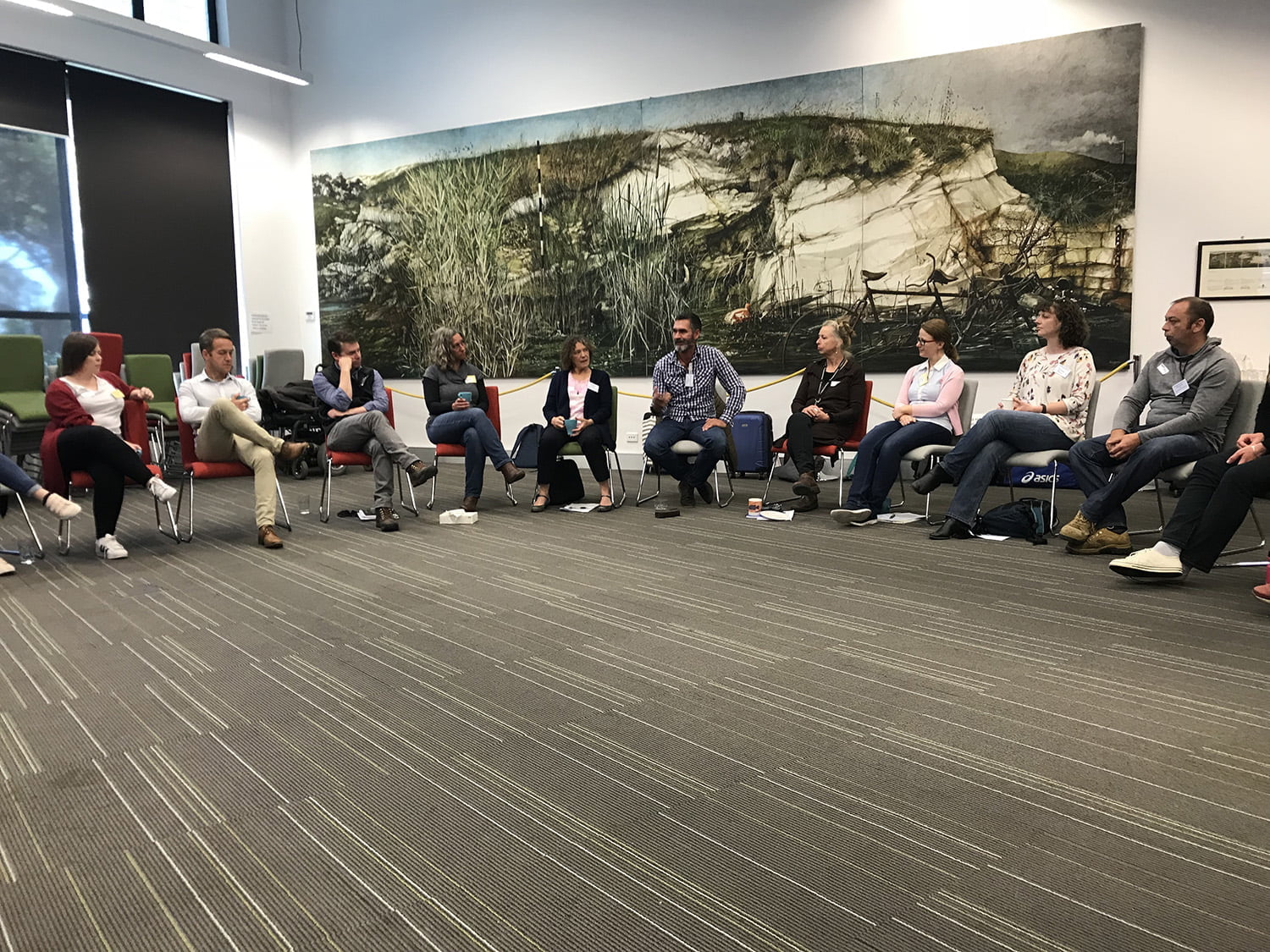
The workshop really demonstrated the power of story for sharing insights, experiences and for promoting behavioural change. Many of the participants felt that, as a result of the workshop, they were more confident in engaging with Aboriginal people and creating opportunities for stories to be shared.
What did you personally gain from the Twinning Program?
“The Twinning program has been a fantastic opportunity to ‘look up’ from my daily activity and take on new approaches and ideas, in a really supportive group. I feel I’ve made new friends and networks in waterway management.
One of the best outcomes for me has been the connections between people and positivity from the Deadly Stories workshop. We have some wonderful Aboriginal leaders. Co-ordinating the workshop has really motivated me to work harder to find ways to build connections between opportunities and people.
There’s so much more we can do towards reconciliation and restorative justice; days like this make you realise we have such a long way to go but little things can make such a collective difference”.
– Robyn
[cta id=’49090′]
